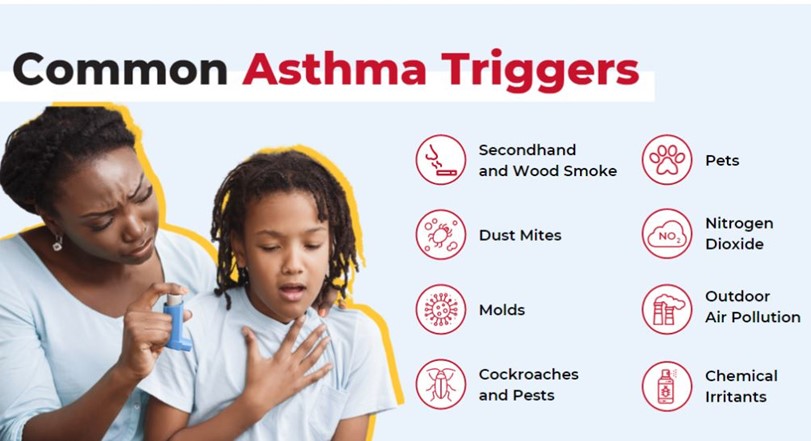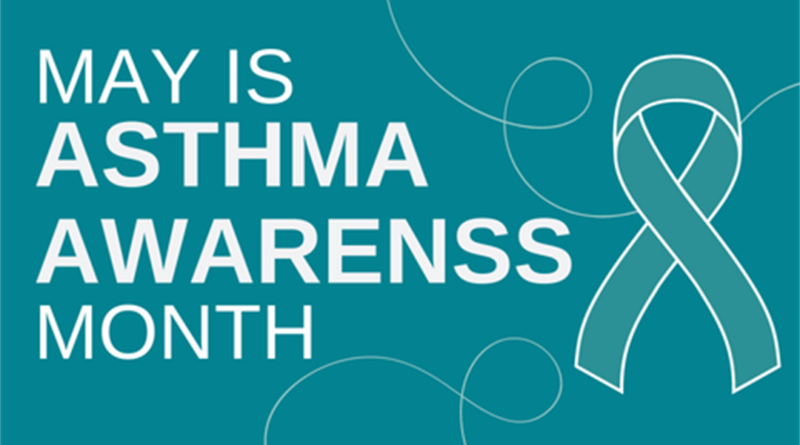It’s Asthma Awareness Month
The Centers for Disease Control and Prevention (CDC) and the U.S. Environmental Protection Agency (EPA) recognize May as National Asthma Awareness Month. Asthma is a serious, but common, lung condition that affects 1 in 13 people, including adults and children. It causes repeated episodes of wheezing, breathlessness, chest tightness, and nighttime or early morning coughing. Asthma can be caused by genetics or the environment, and it can be controlled by taking medicine and avoiding the triggers that can cause an attack.
NYCHA’s Environmental Health and Safety Department (EHS) would like to provide you and your family with some vital information on identifying and eliminating environmental elements that might trigger an asthma attack.
Asthma can be caused by…
- Exposure to asthma triggers. Your asthma triggers can be very different from someone else’s.
- The most common triggers are:
- Tobacco smoke
- Dust mites
- Outdoor air pollution
- Cockroach allergen
- Pets
- Mold
- Secondhand smoke or smoke from burning wood or grass

- Other asthma triggers:
- Sinus infections
- Allergies
- Pollen
- Acid reflux
- Medicines
- Bad weather (thunderstorms or high humidity)
- Some foods and fragrances
Treating asthma
According to the CDC, if you suffer from asthma, you should take your medicine exactly as your doctor tells you. Keep in mind that not everyone takes the same medicine. Be sure to ask your doctor about any side effects that might be caused by your medication. Along with your doctor’s guidance, you should be able to monitor and manage your asthma.
Did you know…
If needed, a NYCHA resident with a medical disability, including a breathing or respiratory disorder such as asthma, can apply for a reasonable accommodation where mold and/or excessive and/or uncontrolled moisture conditions exist. Such accommodations may include:
- The right to install and operate an additional air conditioning unit in the apartment if the electrical system permits an additional unit.
- Temporary relocation during mold remediation.
- Permanent relocation to other NYCHA housing if the apartment is uninhabitable and another apartment is available.
- The use of enhanced dust suppression methods during mold remediation.
Public housing residents can request a reasonable accommodation by…
- Visiting or calling their property management office during normal business hours.
- Online through NYCHA’s Self Service Portal: https://selfserve.nycha.info
- Calling the Customer Contact Center (CCC) at 718-707-7771 or visiting a CCC Walk-in Center.
- Indicating the request on NYCHA Form 040.297, Public Housing Annual Affidavit of Income.
- Making the request orally or in writing to an appropriate NYCHA employee, which includes property managers, assistant managers, housing assistants, CCC representatives, and others.
- A public housing resident with disabilities can also call NYCHA’s Services for People with Disabilities Unit at 212-306-4652 for assistance with requesting a reasonable accommodation.
If you have questions about this or any environmental health and safety matter, please email ehs@nycha.nyc.gov. Residents, employees, and any member of the public can submit environmental health and safety concerns at on.nyc.gov/submit-concern.
For more information on how to monitor and control asthma, please visit:

